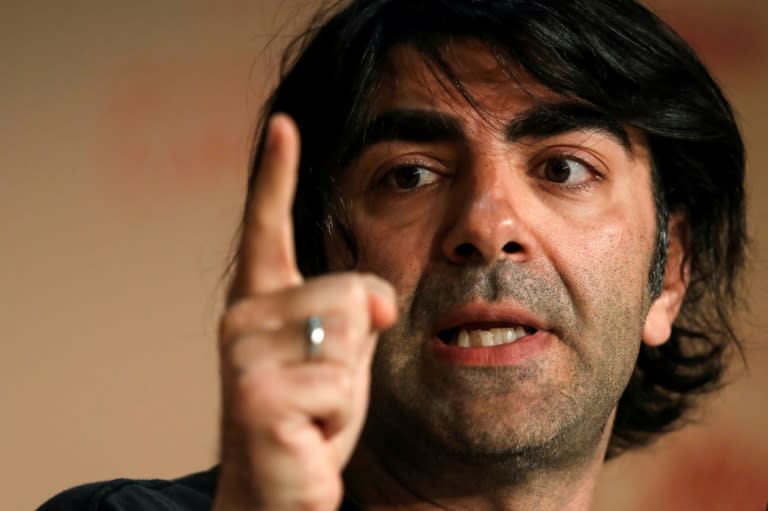Manchester horror looms over Kruger movie at Cannes
Hollywood actress Diane Kruger said Friday she took her new film role as a mother who loses her family in a terror attack to show how survivors are often left alone with their suffering. Kruger, who drew glowing reviews for her part in "In the Fade" by German-Turkish director Fatih Akin, said the cast and crew in Cannes for the film's premiere were haunted by the 22 victims of the Manchester bombing and the fate of their families. "I haven't slept in days thinking about what happened, not just in Manchester but (in other attacks) all around the world," Kruger told reporters. "We live at a time when such horrors are occurring almost daily. You read about 22, 23, 100 dead but you never see a film about the people who are left behind. How do you continue to live after experiencing something horrible like that, how can you come to grips with such injustice?" The star of "Troy" and "Inglourious Basterds" appears in her first movie role in her native German as Katja, a woman living in Hamburg who is married to a former Kurdish drug dealer who has put his life back on track (Numan Acar of "Homeland"). When a bomb rips through her husband's office, killing him and their young son, the police initially suspect a gangland killing or a dispute within the German port city's large Turkish community. It soon emerges, however, that neo-Nazis were behind the atrocity and Katja, covered in tattoos and black leather, launches a crusade for justice. "It was terrible to live with, really upsetting... the film almost killed me," Kruger said. "I haven't worked since... I haven't read a script since. The film really changed me, it changed my life." - 'Anger is a gift' - Akin wrote the screenplay based on one of Germany's biggest post-war scandals: the discovery in 2011 of a group calling itself the National Socialist Underground (NSU) which carried out a series of racist murders over the course of a decade. The country was shocked to discover that the killings -- long blamed by police and media on migrant crime gangs and dubbed the "doner (kebab) murders" -- were in fact hate crimes. "A lot of people in Germany don't know much about the National Socialist Underground, even educated people who read newspapers -- they don't know that they were involved in bomb attacks and things like this," he told AFP. "There is a lot of anger behind this film -- anger is a gift for an artist. One of the NSU victims was from Hamburg, the person they killed was somebody my brother knew so it hit very close to home." Akin, who won the Golden Bear prize at the Berlin film festival in 2004 for "Head-On" and best screenplay at Cannes in 2007 for "The Edge of Heaven", is the most prominent cultural representative of Germany's three-million strong Turkish community. He expressed sympathy to the families who lost loved ones in the Manchester attack and said their agony was shared around the world. "When I was writing this, there was the attack at the Bataclan (in Paris), there was Nice, there was Berlin, Istanbul, Pakistan..." he said. "We live in the days of war. It's an asymmetrical war, it's a brutal war, it's an unfair war, but it's a war and I'm a film-maker of this period. "People may get disturbed but they shouldn't get disturbed about my film, they should get disturbed about the world we're living in." The Cannes festival ends Sunday when its Palme d'Or top prize will be awarded.



